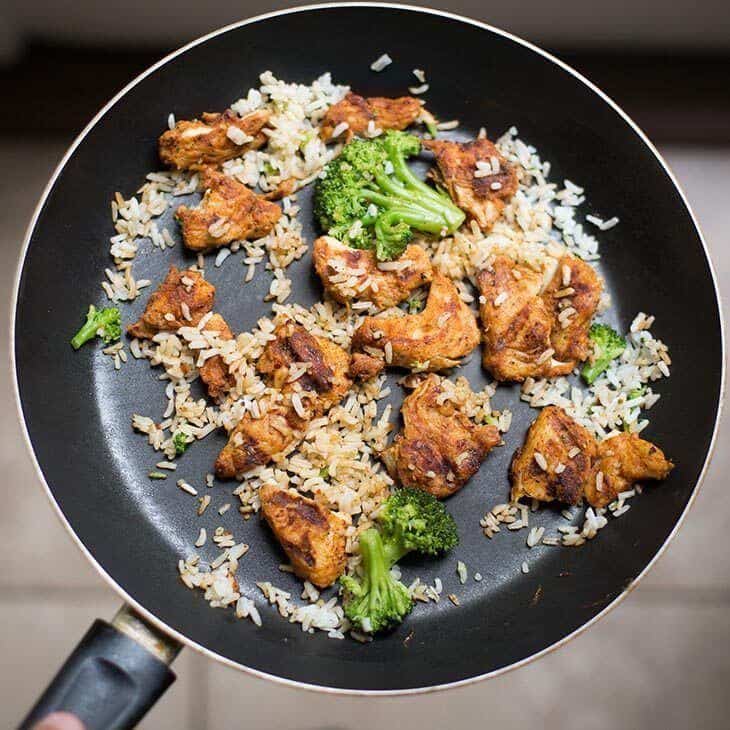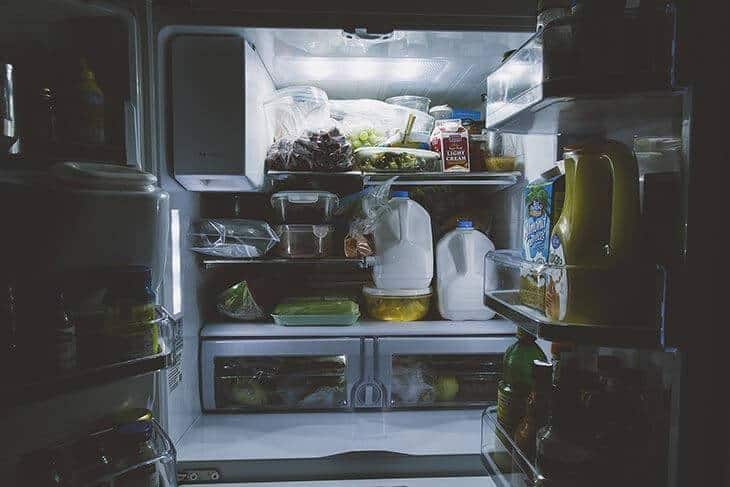Have you ever eaten cooked chicken and wondered why it tasted funny? Chances were that you’d eaten food that was either spoiled or nearly spoiled.
Eating spoiled food exposes you to harmful bacteria that can cause a wide array of illnesses. Unfortunately, cooked chicken doesn’t always have indicators to show if it’s still edible or not.
So how long can cooked chicken sit out at room temperature before it spoils? We will answer this and other questions now.
What is the Danger Zone?

When you leave cooked food at room temperature, it immediately enters the Danger Zone. Coined by the USDA Food Safety and Inspection Service, the Danger Zone is a temperature range (40 to 140°F or 4.4 to 60°C) where bacteria quickly spreads out in the food, making it unsafe to eat after a few hours.
Once cooked food enters the Danger Zone, it needs to be eaten or stored in the refrigerator within two hours. Otherwise, the spread of bacteria will contaminate the food, and anyone who eats it risks a stomachache (or worse).
Things to Consider

Sometimes it’s hard to decide what to do with that extra chicken from your afternoon potluck. To help you with that, I’ve compiled a list of factors you should consider before deciding what to do with your leftover poultry:
Room and Storage Temperature
It’s true that the Danger Zone of most foods is between 40-140°F on an average day. However, if the room temperature exceeds 90°F (32.2°C), food has the tendency to spoil more quickly. This means you have to refrigerate your leftover chicken within one hour, or you’ll have little choice but to throw it away.
If you wish to reheat your chicken or use it as an ingredient for other dishes over the span of days, you should refrigerate it at a temperature that is lower than 40oF. If you go higher than this, you will expose your meat to harmful bacteria that can cause serious illnesses.
Spoilage and Storage Period
Again, remember that most food will spoil if left at room temperature after two hours. This period shortens on an extremely hot day, but may extend if the weather is very cold (lower than 40°F).However, just because you stuck your leftover chicken in the refrigerator doesn’t mean that it will stay safe from bacteria growth indefinitely. bbqrecipez recommends eating leftover poultry stored in the fridge within 3 to 4 days. Frozen cooked food, however, can keep for 2 to 6 months without spoiling.
Gut Feel
Sometimes it comes down to what your instincts tell you. Spoiled food, especially cooked chicken, doesn’t always show signs of contamination. There will be no weird smell or mold growing under its skin, especially if it’s only been sitting out for a couple of hours.
If you’re not sure how long the chicken has stayed out of the fridge, just throw it away. Remember: Buying a freshly cooked chicken is cheaper than buying medicine for a bacterial infection. Chicken tastes better than meds, too.
Storing Chicken Safely
When storing cooked chicken, do not just place it in any container and then toss it in the fridge. Worse, do not place the whole serving plate inside the refrigerator, especially without any kind of covering. Doing this will expose your chicken to other flavors already in the fridge, which may drastically affect its taste.
In this video, Hillsborough Country shares useful tips on storing leftover properly:
When storing any kind of leftover, put the food in a shallow container with a lid. Shallow containers allow food to cool faster. You can split your food into several containers if it doesn’t fit into a single one.
Avoid stacking three or more hot containers on top of each other. The food in the middle containers won’t be able to cool properly, and there’s a higher risk of food spoilage that way.
If you made chicken stew, you could put the pan in a bowl of iced water so that the food will cool down more quickly. Stir the stew with a spoon until it has cooled down.
If you have leftover whole chicken, you can slice the meat into smaller pieces and pack them in plastic ziplock containers. This way, you don’t have to take out the whole thing from the fridge when you need ingredients for a chicken sandwich or salad.
The right containers are important, too. Choose containers that can be sealed properly, keep moisture out, and are durable enough to remain under freezer temperature for long periods. Avoid using storage and sandwich bags to store food in the freezer, since they tend to suffer from freezer burn.
And don’t forget to label your containers with the food and the date when you tucked them in the fridge. This way, it’s easier to keep track of their spoilage dates.
Conclusion
You can’t always avoid leftovers. You can, however, avoid food spoilage by knowing when and how to store your leftover food.
Before storing your cooked chicken in the fridge, remember these three things: the right room and storage temperature, the spoilage and storage period, and trusting your gut feel.
Is this article helpful? Let me know your thoughts in the comments’ section. And please take the time to share this article with your friends. Stay safe and healthy!
Helpful Links
How Temperatures Affect Food (USDA Food Safety and Inspection Service)
Storage Times for the Refrigerator and Freezer (Foodsafety.gov)
How Long Can I Keep Leftovers? (Hillsborough County)

























